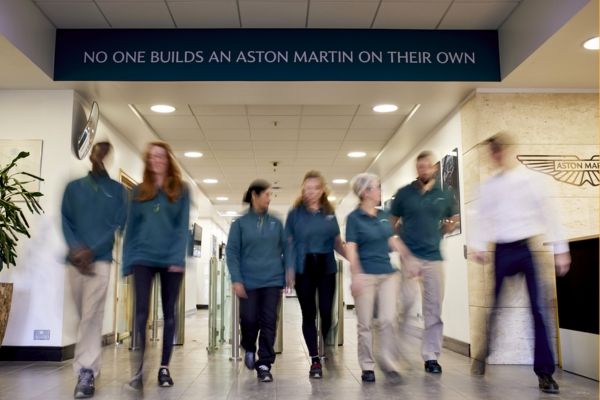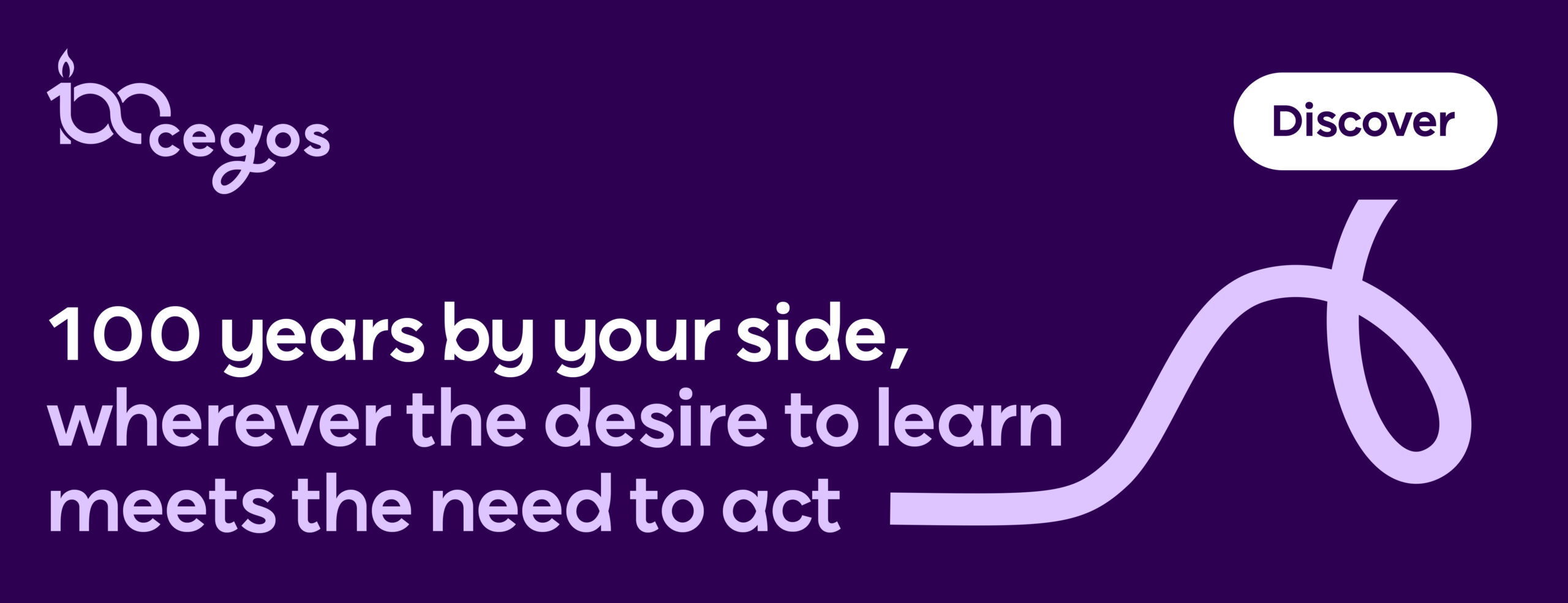

Equipping first-time managers to thrive in a complex and unpredictable world is one of the greatest challenges facing L&D teams today.
Promotion to being a manager is still seen as a reward to many, yet it brings with it a need to navigate something far beyond technical expertise.
Newly appointed managers must learn how to lead people, meet expectations from above and deal with their own growing pains, often with minimal support.
In the latest Cegos Global L&D Talk, L&D leaders from 3 global businesses shared how their organizations are taking first-time manager development seriously.
They each spoke about how they are addressing the development of new managers in a way that builds competence, instils confidence and drives significant cultural transformation.
Each case study offers rich insights into what works and, importantly, why.
SUEZ: A sense of identity
French utility company, SUEZ, considers identity an integral part of any training program.
Anne De Kerchove and Perrine Renevey, who lead Learning and Projects at SUEZ, shared how their team successfully launched the ‘START Management’ program – a six-month blended learning journey, designed to support diverse cohorts of first-time managers.
The program is tightly structured, beginning with digital content reflecting the real-life challenges new managers face. This includes an interactive video series and a virtual escape game, designed to boost team spirit and engagement.
Through the integration of DiSC profiling and assertiveness tools, first-time managers embark on a journey to enhance their self-awareness and have a deeper understanding of the diverse dynamics within their teams.
During face-to-face sessions, they explore fundamental skills, have opportunities to discuss about their specific problematics and practice through role plays, gathering feedback from other participants and the facilitator.
At the end of the journey, participants are awarded a badge that reflects achievement and values the time and commitment given to their learning.
For one year, they also have access to a specially-programmed AI assistant – named Liza Coach – to help guide them through the journey and beyond, whenever they face challenges.
The initiative is creatively branded as "The Management Factory" with a solid visual identity that aligns with the organization’s own branding.
“We need to make it aspirational,” says Perrine. “A recognizable brand gives credibility and creates a sense of pride.”
The results and feedback have been excellent. Participants reported immediate improvement and increased confidence, with a clear desire to apply what they learned back in the workplace.
Six months after the completion of the learning journey, managers were assessed by their supervisors and amongst peers, which built in accountability and encouraged sustained growth.
The structure of the journey, as well as the striking visibility, helped ensure high completion rates and strong team bonding.
The objective is now to roll out The Management Factory in other countries. However, it is not being forced onto regional teams. Instead, regional leads are encouraged to choose to adopt it, which means buy-in is more effective.
Mettler Toledo: One team, one language
Mettler Toledo – a global precision instruments manufacturer – wanted to create a unified identity, as well as a new approach to leadership development across the organization.
The Management Skills Training (MST) Blended Learning Journey is a comprehensive learning journey designed to help new people managers develop essential management skills.
The MST learning journey encompasses a blend of synchronous and asynchronous learning delivery methods: instructor-led virtual and in-person workshops, self-directed digital learning, self-assessments, peer-coaching support system, and on-the-job learning assignments and action planning implementation.
“We wanted to create a common leadership language across geographies and functions,” says Karen Clark, Head of Learning & Development in North America. “That means expectations are clearer and behaviours are more aligned.”
This is achieved through designing a structured program, using a scaffolding learning approachto build up all new managers’ ability to develop themselves and get the most out of their learning.
It sets the direction by stating the end goal and enables moving on to self-assessment activities to define personal learning goals. The next step is to acquire the necessary knowledge and skills step by step through expert input, peer-to-peer feedback, sharing, real plays, on-the-job assignments and robust action planning to ensure continuous development and implementation of the skills learned.
The journey has been completed by over 500 Managers across Europe, North America and Mexico. Outcomes include improved team performance, sharper strategic focus, and a stronger sense of self-awareness among managers.
Critically, Mettler Toledo’s success lies in how it weaves learning into the business. Not as a standalone event, but as part of a larger developmental journey. Collaboration with L&D, strong peer-coaching, and a sense of ‘One Team’ were repeatedly named as key success factors.
“By investing in our managers, we’ve unlocked a ripple effect that positively impacts every corner of our business,” says Karen. “It’s not just a learning journey; it’s a catalyst for success.”

Sonatrach: Rebuilding leadership, one layer at a time
When Sonatrach – an Algerian oil and gas company – acquired a new refinery in Italy, more than 300 new people came into the workforce, almost half of current workforce size. This called for localised leadership to be rapidly rebuilt.
Fabio Torretta, Section Head at Sonatrach, who led the initiative, describes it as “re-education of the organization.”
The new approach involved a layered rollout of leadership programs designed around the real-life needs of different management levels.
The first wave focused on newly appointed supervisors. Delivered offsite in a tranquil rural setting, the training program emphasized personal influence, listening, and foundational leadership skills and tools.
The CEO and HR Director also visited, to listen more than speak.
Participants noted: “They weren’t there to deliver a speech, they were there to hear our concerns and ideas. That made a huge difference.”
A second program, targeting experienced supervisors, was built around the practices of Effective Leadership. Again, senior leadership were present to understand the challenges that supervisors face.
The third program targeted field supervisors, offering one-day workshops with unique opportunities of face-to-face interaction with top management.
In total, 149 people were trained in just two years. The result? More confident supervisors, and a common leadership culture that is having a lasting impact on the company.
“These are seeds we’ve sown,” said Fabio. “Now we have to protect them. The wheel keeps spinning, and turnover is constant. Leadership is never done.”
Moving ahead with confidence
All these case studies offer one powerful lesson. Developing first-time managers is not about one-size-fits-all content. It is about designing experiences that resonate with real challenges, embedding support over time, and aligning programs with the broader corporate strategy.
I believe that confidence without competence is a risk. And competence without confidence is a waste. Building both, requires trust, structure, and sponsorship.
A recent Cegos Barometer survey of HR managers and first-time leaders across 10 countries backs this up:
- 39% of HR managers say it is hard to recruit first-time managers.
- 37% say internal candidates lack the necessary skills.
- 95% of first-time managers report they now understand what is expected of them, especially when supported the right way.
For L&D teams, the message is clear. Do not just train managers. You also need to build an effective ecosystem in which they can truly lead.
If you would like to download the first-time managers’ survey results, click here.










